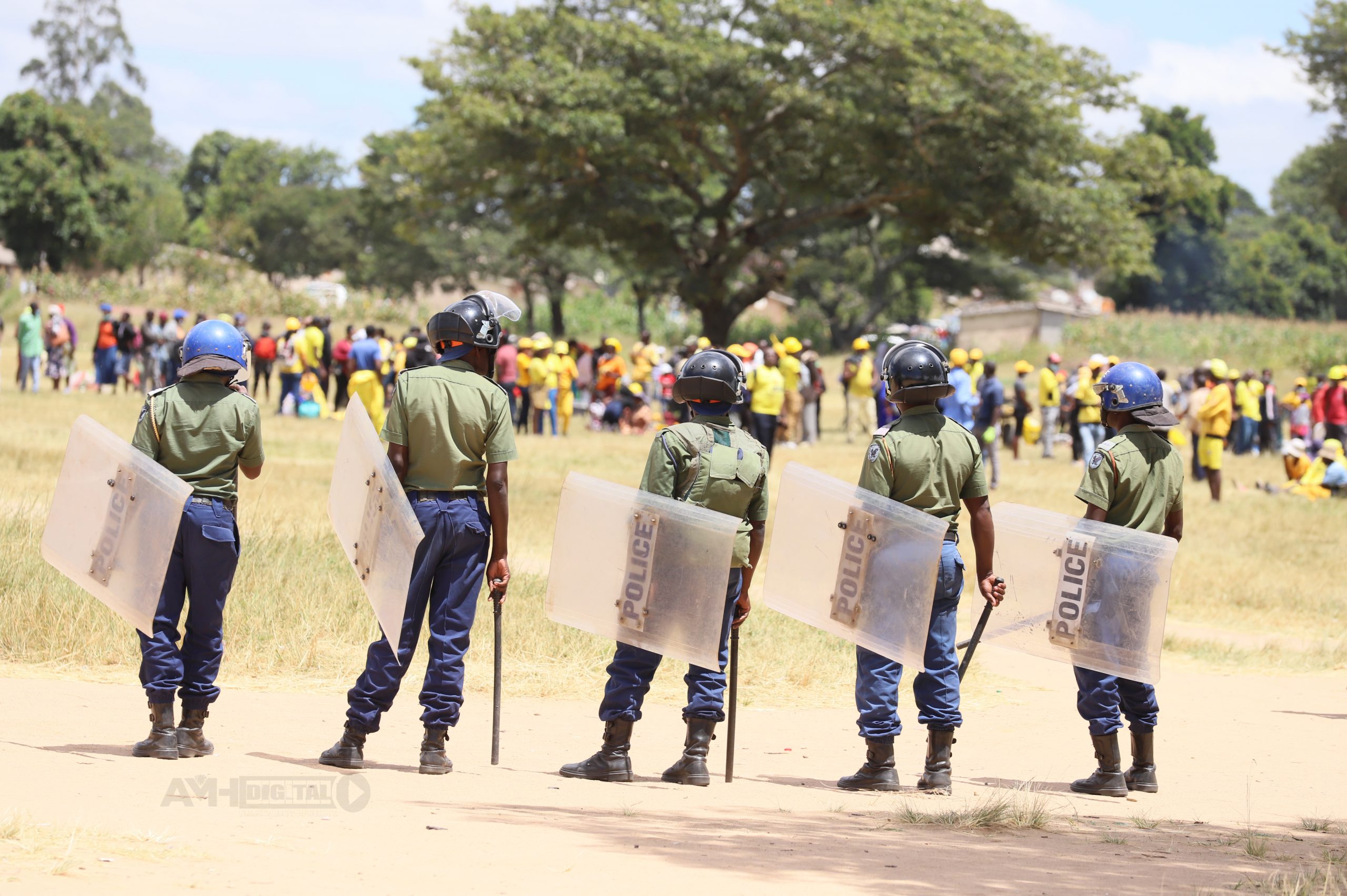
KUDZAI KUWAZA THE allegations levelled against the police by the Citizens Coalition for Change (CCC) of selective application of the law in banning its political rallies has once again cast a spotlight on accusations of use of law by the state to frustrate opposition political parties and civil society.
Judging by political events since last year, all pointers are leading towards a political environment where the law is now the new repressive tool to outwit opposition parties by the Zanu PF government.
The Nelson Chamisa-led CCC was denied an opportunity to hold a campaign rally after police barricaded Marondera’s Rudhaka Stadium and chased away hundreds of supporters last weekend.
Police banned the rally under the provisions of the Maintenance of Peace and Order Act. Police refused to sanction Chamisa’s rally in Binga, which was scheduled for March 15, 2022, citing that President Emmerson Mnangagwa had a planned visit in Hwange two days later.
However, the opposition party has accused the police of targeting its rallies using the law while not subjecting the ruling Zanu PF party and the MDC Alliance led by Douglas Mwonzora to the same restrictions.
This is not the first time that Mnangagwa’s government has been accused of using lawfare to restrict the opposition and civil society.
Lawfare is defined as the misuse of legal systems and principles against an opponent for the purpose of damaging or delegitimising them. It is also described as a tactic used by repressive regimes to label and discourage civil society or individuals from claiming legal rights via national or international legal systems.
This was evident in a ruling in 2020, which determined that the then MDC Alliance leader Nelson Chamisa’s rise to the party’s presidency was irregular.
- Chamisa under fire over US$120K donation
- Mavhunga puts DeMbare into Chibuku quarterfinals
- Pension funds bet on Cabora Bassa oilfields
- Councils defy govt fire tender directive
Keep Reading
The court ruling recognised Thokozani Khupe as the legitimate successor of the late founding MDC leader Morgan Tsvangirai and interim leader of the party. Khupe then lost the leadership to Mwonzora during an extraordinary congress held in Harare.
At least 80 councillors and more than 40 members of Parliament who were aligned to Chamisa were recalled by the MDC-T, drastically weakening its control of councils in various towns and cities.
It also resulted in Mwonzora’s party getting funding from the Treasury through the Justice ministry courtesy of the Political Parties (Finance) Act. This was widely seen as a strategy to starve Chamisa of funding and eventually weaken him ahead of the 2023 presidential elections.
Chamisa, as a result, deserted the MDC name and symbols to form the new CCC.
Government delayed by-elections through which Chamisa’s party could regain political seats triggered by the recalls from the MDC-T.
Vice-President and Health minister Constantino Chiwenga promulgated a Statutory Instrument amending the Public Health (Covid-19 Prevention, Containment and Treatment) Regulations to enforce the ban.
This was after the Zimbabwe Electoral Commission (Zec) had announced that by-elections would be held in December 2020.
Political analyst Dumisani Nkomo said the use of lawfare to suffocate opposition parties and civil society will intensify as the country nears 2023 harmonised elections.
“I think this has been a running theme since the beginning of the Second Republic to use lawfare to frustrate the opposition. It is very systematic.
“There will be an increase in the use of legislation and Statutory Instruments as we approach next year’s elections,” he said.
Since Mnangagwa came into power, more than 600 Statutory Instruments have been promulgated with Nkomo adding that CCC must come up with political strategies to counter the lawfare tactic used by the government.
In what is seen as plans to stifle the opposition, the government is looking at introducing the Patriotic Bill.
The proposed law is expected to criminalise and impose stiff penalties on private correspondence by “self-serving citizens” with foreign governments or any officer or agent. The Bill looks to “prohibit any Zimbabwean citizen from wilfully communicating messages intended to harm the image and reputation of the country on international platforms or engaging with foreign countries with the intention of communicating messages to harm the country’s positive image and/or to under its integrity and reputation”.
Government also plans to railroad the Private Voluntary Organisations (PVO) Bill that will amend the Private Voluntary Organisations Act, giving the state unfettered powers to snoop into operations of civic society organisations (CSOs), trusts and other humanitarian organisations, is seen as the use of lawfare to cripple its operations.
Most non-governmental organisations are viewed by the government as sympathisers of the opposition. The Bill was gazetted in November 2021.
It is estimated that nearly US$1 billion that comes into the country annually for social support schemes will stop once the PVO Amendment Bill is passed into law.
Analyst Tawanda Zinyama said there was nothing wrong with the regulation but it becomes a cause of concern when there is selective application.
“The critical issue is the selective application of the law that will not create a level playing field. The law should be applied in the same way with all political parties,” he said.
“There is nothing wrong with regulation if it is impartial. If it is used selectively then it becomes problematic.”











